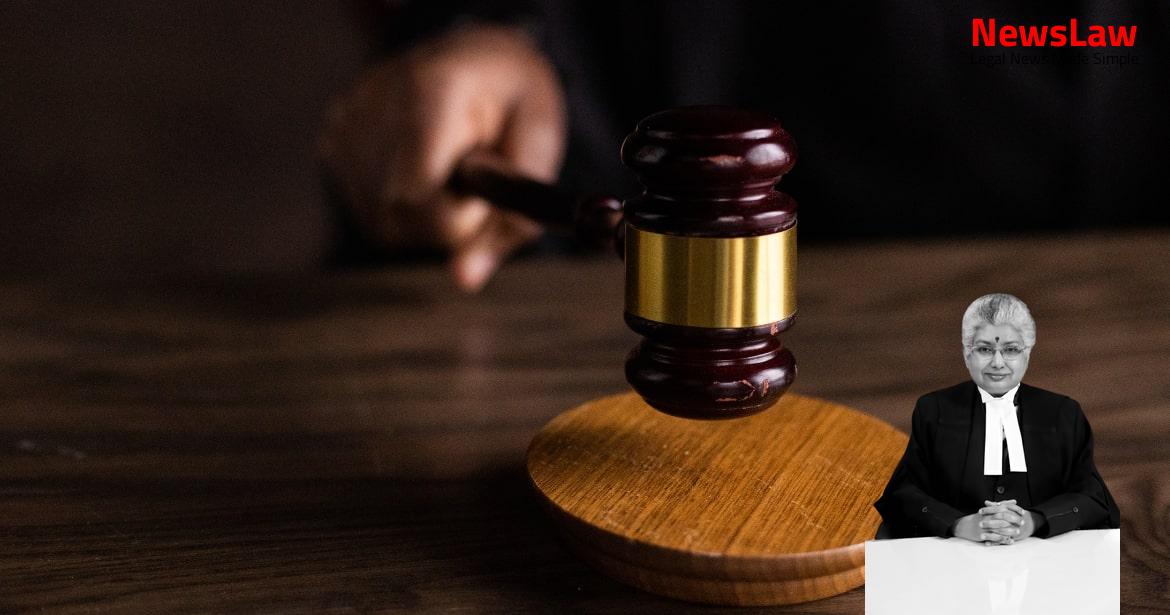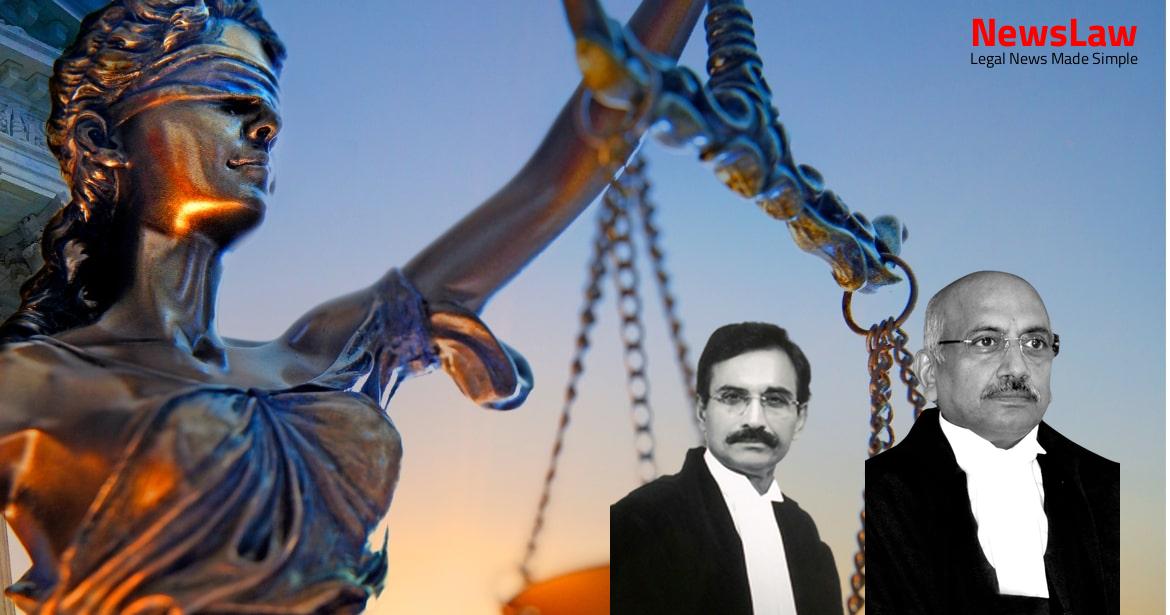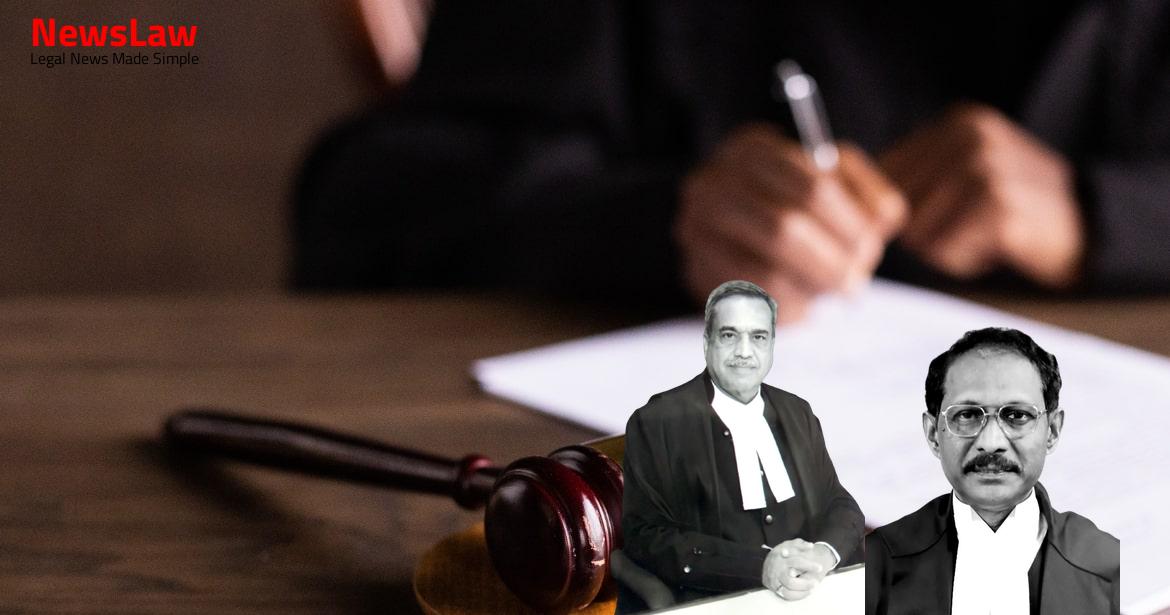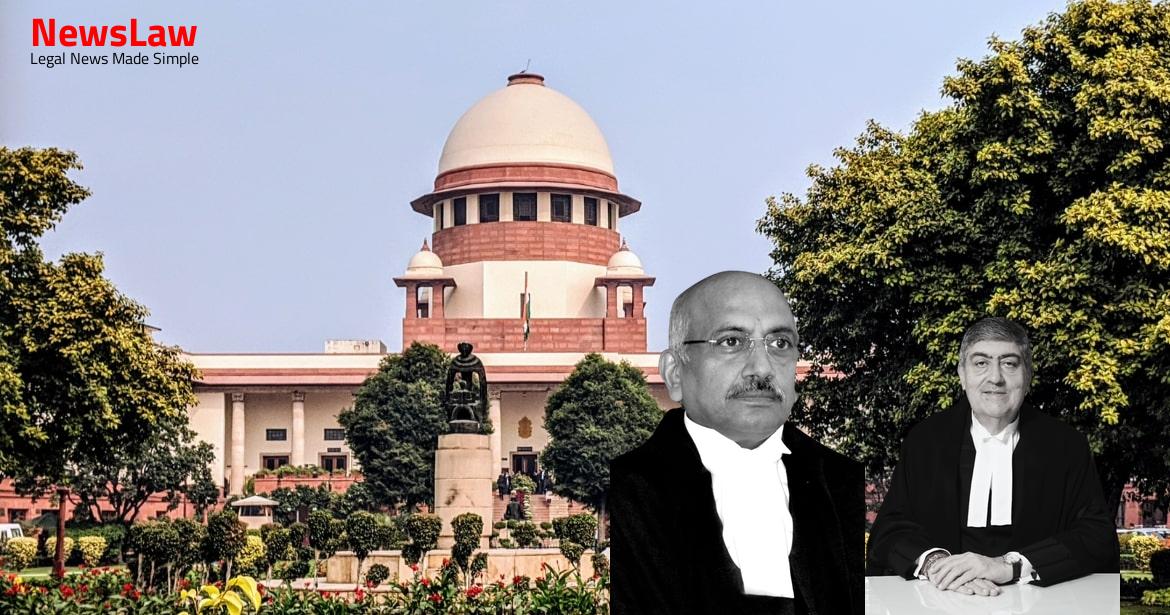The Trial Court vide its judgment and order dated 27.04.2009 in both the aforesaid cases convicted the appellant herein-accused for offences under Section 13(2) read with Section 13(1)(c) of the Prevention of Corruption Act, 1988 (‘the Act’, for short) and sentenced him to undergo rigorous imprisonment for two years and to pay a fine of Rupees Two Thousand and in default thereof, to undergo rigorous imprisonment for six months. No 24 of 2003 is that while the accused was working as Agricultural Officer, State Seed Farm, Perambra, for the period 31.05.1991 to 31.05.1994, he abused his official position as a public servant and committed criminal breach of trust and misappropriated an amount of 3 Rs.20,035/-, during the period from 27.04.1992 to 25.08.1992, by not remitting the same to the Sub-Treasury, Perambra.
12,290/- being the proceeds from the auction of 6,046 coconuts; Rs.11,844/- being the proceeds from the auction of 3,883 coconuts harvested from State Seed Farm, Perambra; Rs.654/- being the price of 160 coconuts harvested on 13.02.1992, 07.04.1993, 17.03.1994 and 12.04.1994, by not accounting for them 4 and has thereby committed the aforesaid offences under Section 13(1)(c) read with Section 13(2) of the Act and Section 409 of the IPC.
No 14 of 1999 (for offences committed for the period from 05.03.1994 to 08.03.1994) were registered against the accused under Section 13(1)(c) read with Section 13(2) of the Act and Sections 409 and 477A of IPC. It is prosecution’s case that it was in the re-audit, that these instances were unearthed and therefore the two cases, C.C. The Trial Court vide judgment dated 27.04.2009, on considering the evidence of record convicted the accused for the offences under Sections 13(1)(c) read with Section 13 (2) of the Act and Section 409 of the IPC, holding that the accused misappropriated an amount of Rs.78,706/-1994, being two-thirds of the auction proceeds, without remitting it to the treasury during the period from 27.04.1992 to 25.08.1992 and from 01.03.1993 to 12.04.1994. That perusal of documents such as posting order of the accused as Agricultural Officer (Ext.P2), copy of report of transfer of charge of the accused (Ext.P3) and file containing posting details of the accused (Ext.P4) would prove that the accused was working as an Agricultural Officer in the State Seed Farm from 31.05.1991 to 31.05.1994, beyond any reasonable doubt. Similarly, an amount of Rs.58,671/- was misappropriated by the accused from the auction proceeds of coconuts harvested from the State Seed Farm, Perambra from 01.03.1993 to 12.04.1994. In the previous case, the accused had misappropriated some amount to be paid to the Proprietor, Agricultural Marketing Corporation, Kozhikode; Kerala State Coir 8 Marketing Corporation, Kozhikode, from the State Seed Farm, Perambra by falsifying and forging the records. Being aggrieved by the judgment of conviction and sentence passed by the Trial Court, the appellant-accused preferred Criminal 9 Appeal Nos.
That as per the statement of PW4 who assumed charge as an Agricultural Officer at the State Seed farm, Perambra for the period from 07.06.1994 to 24.04.1997, he did not receive any cash book for the period from 10.02.1992 to 11.03.1994. The appellant herein entrusted the cash book for the period from 12.03.1994 to 03.06.1994 and cash balance of Rs.2,763/- after PW4 took charge. Learned counsel for the appellant herein-accused at the outset submitted that the High Court was not right in confirming the judgment of conviction and sentence passed by the Trial Court and the impugned judgments suffer from legal as well as factual infirmities and the findings therein are perverse and are liable to be set-aside, and the appellant is liable to be acquitted.
14.3 That the charges in the first three cases were framed on 17.08.1999 which is much after the audit and on the said day, the prosecution was very well aware of the alleged misappropriation in respect of the present case. The FIR in the present cases was filed on 03.12.2001 after the appellant herein was dismissed from the service and the judgment of the Trial Court was passed. 8
The conviction of the appellant herein under Section 409 of the IPC has no legal basis since the prosecution could not prove the most vital ingredient of the said offence, namely, entrustment of goods or dominion over property. The following submissions were also made: 15.1 That the accused, while working as an Agricultural Officer at the State Seed Farm, Perambra from 31.05.1991 to 31.05.1994, in the capacity of a public servant, misappropriated an amount of Rs.20.035/- during the period from 27.04.1992 to 25.08.1992 and an amount of Rs.58,671/- during the period from 01.03.1993 to 12.04.1994.
That prosecuting the appellant herein in the present two cases would amount to double jeopardy. The terms ‘double jeopardy’, ‘former jeopardy’, ‘jeopardy for life or limb’, ‘jeopardy for the same offence’, ‘twice put in jeopardy of punishment’ and other similar expressions used in various Constitutions and statutes are to be construed substantially, to the same effect. (1) A person who has once been tried by a Court of competent jurisdiction for an offence and convicted or acquitted of such offence shall, while such conviction or acquittal remains in force, not be liable to be tried again for the same offence, nor on the same facts for any other offence for which a different charge from the one made against him might have been made under sub-section (1) of section 221, or for which he might have been convicted under sub-section (2) thereof.
(4) A person acquitted convicted of any offence constituted by any acts may, notwithstanding such acquittal or conviction, be subsequently charged with, and tried for, any other offence constituted by the same acts which he may have committed if the Court by which he was first tried was not competent to try the offence with which he is subsequently charged.
Also Read: https://newslaw.in/supreme-court/w-p-crl-no-000491-2022/
Accordingly, so long as an order of acquittal or conviction by a court of competent jurisdiction remains in force, the person cannot be tried for the same offence for which he was tried 19 earlier or for any other offence arising from the same fact situation, except the cases dealt in with under sub-sections (2) to (5) of the section. As per the decision of this Court in Vijayalakshmi vs Vasudevan (1994) 4 SCC 656 in order to bar the trial of any person already tried, it must be shown that: (i) he has been tried by a competent court for the same offence or one for which he might have been charged or convicted at a trial, on the same facts, (ii) he has been convicted or acquitted at the trial, and (iii) such conviction or acquittal is in force.
However, the said concepts are circumscribed in Article 20(2) which provides that there should be not only a prosecution but also punishment in the first instance in order to operate as a bar to a second prosecution and punishment for the same offence. On a plain reading the of sub clause (2) of Article 20, it is clear that the said provision bars a second prosecution only where the accused has been both prosecuted and punished for the same offence previously vide S.A. Secondly, the conviction or acquittal in the previous proceeding must be in force at the time of the second proceeding in relation to the same offence and same set of facts, for which he was prosecuted and punished in the first proceeding. Where there are two distinct offences made up of different ingredients, the embargo under Article 20 of the Constitution of India, has no application, though the offences may have some overlapping features. In the celebrated judgment in the case of Maneka Gandhi vs Union of India 1978 AIR 597, this Court gave a new dimension to Article 21, wherein it stated that the right to live includes within its ambit the right to live with dignity. Double punishment may arise when a person is convicted for two or more offences charged in one indictment however, the question of double jeopardy arises only when a second trial is sought on a subsequent indictment following a conviction or acquittal on an earlier indictment. The appellant herein referred to the 24 testimonies of PW-5 who was a resident of Ulliyeri engaged in coconut business, PW-11 who was the Agricultural Officer at Thayanna, PW-12 who was the Accounts Officer, Principal Agricultural Officer, Kozhikode and PW-13 who was the Deputy Superintendent of Police, Vigilance and Anti-Corruption Bureau, Northern Range, Kozhikode. He stated that the appellant who was the Agricultural Officer then, handed over to him, a carbon copy of the receipt for payment of Rs.8,724/- on 28.05.1992. As per this witness, there were a lot of cash transactions in the Seed Farm and in the absence of the officers, the staff would handle the matters of cash.
In his cross-examination, PW-12 stated that he had 26 not seen the departmental audit that was firstly conducted. PW-5
in his testimony stated that he gave the amount to the appellant herein whereas in his cross-examination, he stated that he does not know to whom he handed over the money. No.24 of 2003 is for misappropriation of an amount of Rs.20,035/- during the period from 27.04.1992 to 25.08.1992; the charge in C.C.
The matter of offences in all the previous three cases and the present case are the same and are said to be committed in the course of same transaction while holding the one and same post of Agricultural Officer by the appellant. The charges in the present case are for relevant period from 27.04.1992 to 25.08.1992 and 01.03.1993 to 12.04.1994 which time period is same as in the previous three cases, that is, 28.03.1994 to 02.04.1994, 15.12.1992 to 31.03.1993 and 05.03.1994 to 08.03.1994 respectively. The appellant is right in contending that the charge in the first three cases were framed on 17.08.1999 which is much after the audit and the prosecution would have been well aware of the misappropriation in respect of the present cases on 17.08.1999.
It has already been observed hereinabove that the allegations/offences in the instant cases are the same as the allegations/offences in the previous three cases, therefore as per the mandate under Section 300(2) of the CrPC, the consent of the State Government is necessary. No 25 of 2003, the appellant is being tried once again for the offences under Section 13(1)(c) read with Section 13(2) of the Act and Section 409 of the IPC for the same period. (b)
In view of the aforesaid discussion, we find that the Trial Court as well as the High Court were not right in convicting and sentencing 32 the appellant herein and therefore, the impugned judgments are liable to be set aside. GAVAI)………………………..J.
Case Title: T P GOPALAKRISHNAN Vs. THE STATE OF KERALA (2022 INSC 1262)
Case Number: Crl.A. No.-000187-000188 / 2017



